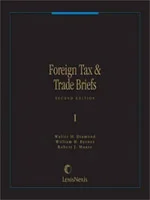German Taxation of Foreign Companies & Controlled Foreign Corporation (CFC) Rules
Foreign company and yet taxation in Germany?
What many entrepreneurs looking for tax saving potential abroad overlook: Establishing a company in a foreign country where low taxation applies often does not help on its own. This is because a foreign corporation with its place of management in Germany is subject to unlimited tax liability in Germany.
The place of management is often where the operational decisions on day-to-day business are made. An unlimited tax liability generally results in the income being subject to German taxation. The entrepreneur who manages his foreign corporation from Germany could therefore have safely dispensed with this and immediately founded a German GmbH.

Controlled Foreign Corporation rules in Germany
The rules of the so-called Controlled Foreign Corporation (CFC) are similarly unpleasant. According to these rules, income of a foreign corporation can be taxed in Germany even if it does not have a place of management in Germany if the conditions of §§ 7 et seq. of the German Foreign Transaction Tax Act (Außensteuergesetz, AStG) apply.
Foreign intermediate companies
According to § 7 AStG, income of a foreign intermediate company is directly attributed to the German shareholder. This also applies if no profit distribution was made at all and in the case of a direct or indirect participation.
In simple terms, a foreign intermediate company exists if it does not receive any so-called active income and this income is subject to low foreign taxation (<25%). In addition, the German resident shareholder or a person closely related to him must be in a position to control the foreign company. Pursuant to Sec. 7 (2) AStG, control is generally given in the case of shareholdings of more than 50% (capital share or voting rights).
Investment companies with income abroad
There are also some special features for investment companies: Section 13 of the German Foreign Transaction Tax Act further extends the attribution of income of foreign companies to domestic shareholders. Income of an investment company is income or capital gains from cash, claims, securities or participations if they are taxed at a low rate abroad. A minimum shareholding by domestic (controlling) taxpayers is not required in this case, i.e. even a minority shareholding is sufficient.
Exemptions for EU and EEA companies
However, an exception applies to EU and EEA companies: If the respective company has its registered office or management in the European Union or in a contracting state on the European Economic Area and can prove that it is engaged in a substantial economic activity and that it does not serve the purpose of mere tax avoidance, the company is not treated as an intermediate company. As a rule, this can only be proven if the foreign company has sufficient material and personnel resources.
No protection by double taxation agreements (DTAs)
The rules on controlled foreign corporations are also to apply to existing double taxation agreements. In this respect, Section 20 (1) AStG provides for a so-called treaty override. This provision is intended to ensure that Sections 7 to 18 AStG are not undermined by a double taxation agreement. Thus, the aforementioned regulations are to be regarded as having priority.
Learn more about German income and corporate income taxation:
We are proud authors of the German chapters of the renowned LexisNexis Matthew Bender publication “Foreign Tax and Trade Briefs”, which covers the latest tax information for 128 countries including Germany. You can order your copy on www.lexisnexis.com.

Your advisors for Controlled Foreign Corporation rules in Germany
Sound planning against unpleasant surprises
Investments in foreign companies and cross-border shareholdings have become indispensable in today's global world. At the same time, the tax authorities have been trying for years to prevent "tax tricks" through the use of foreign companies.
Good planning and precise examination are therefore absolutely necessary so that the foreign participation does not become an expensive trap which, in case of doubt, still leads to criminal tax investigations years later. We will be happy to help you with your existing and future foreign investments. We are available to you at any time by e-mail (info@winheller.com), phone (+49 69 76 75 77 85 31) or via our contact form for international tax law.
Do you need support?
Do you have questions about our services or would you like to arrange a personal consultation? We look forward to hearing from you! Please fill in the following information.
Or give us a call: +49 69 76 75 77 85 31




